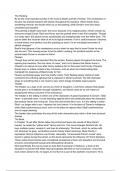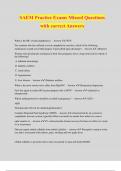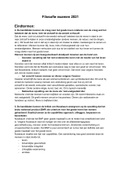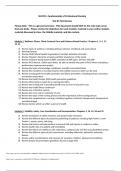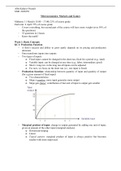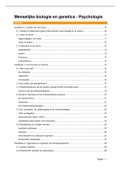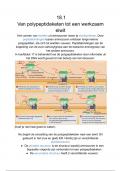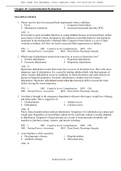Summary
Summary The Picture of Dorian Gray - English Home Language
In depth chapter-to-chapter analysis with characters of Important Symbols present in The Picture Of Dorian Gray, namely, The Painting, Hedonism, Theatre , The Yellow Book, Appearance vs Reality, Art vs Real Life, used to construct in depth literature essays worth A+ worthy marks.
[Show more]
